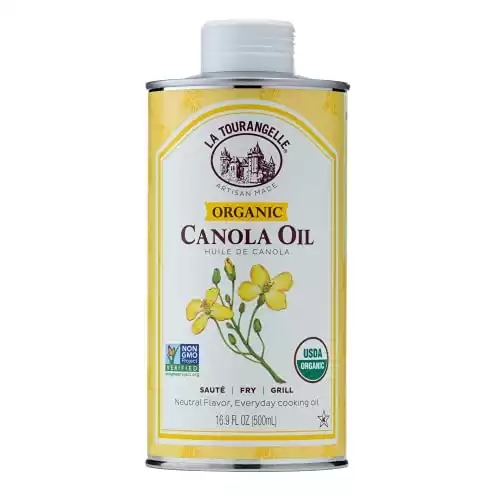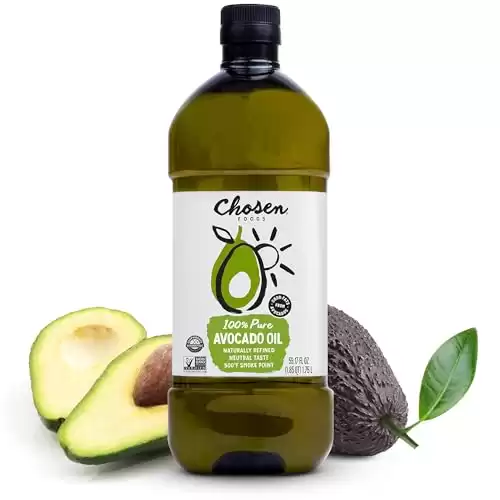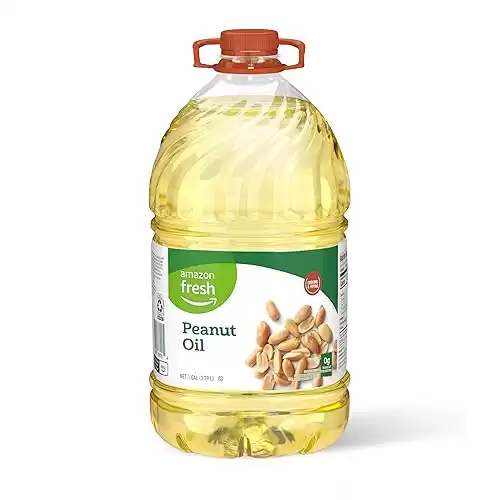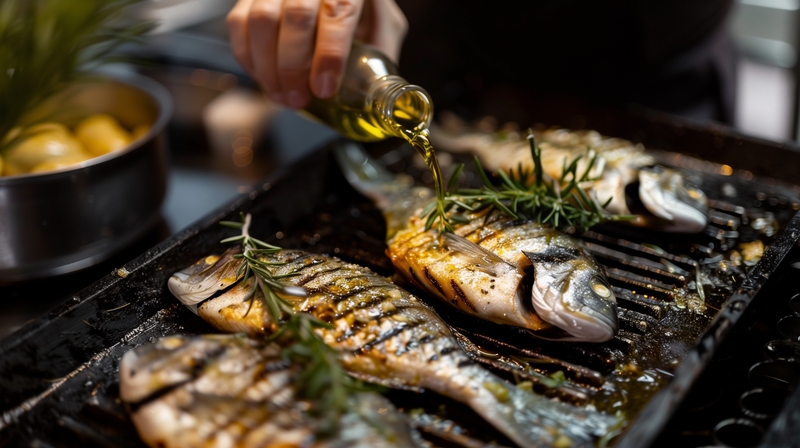
With so many options available, it can be challenging to determine which oil is the best for grilling fish.
In this article, we will explore the different types of oils commonly used for grilling fish and help you choose the best one for your next seafood cookout.
One of the most popular oils for grilling fish is olive oil.
This versatile oil is rich in healthy fats and imparts a distinct flavor to the fish.
However, it is essential to choose the right type of olive oil, as some varieties have a low smoke point and can burn easily, resulting in an unpleasant taste.
Other oils commonly used for grilling fish include vegetable oil, canola oil, and grapeseed oil.
Each of these oils has its unique characteristics and can affect the taste and texture of the fish differently.
In this article, we will provide an in-depth analysis of the different oils used for grilling fish, including their smoke points, flavors, and health benefits.
By the end of this article, you will have a clear understanding of which oil is the best for grilling fish and how to use it to achieve the perfect grilled seafood dish.
Best Oil for Grilling Fish
|
Our Rating:
4.6
|
Our Rating:
4.8
|
Our Rating:
4.8
|
Our Rating:
4.7
|
|
$10.78
|
$8.99
|
$34.17
|
$19.10
|
|
Description: This neutral-flavored vegetable oil is ideal for grilling fish, as it won't overpower the delicate taste of seafood. Its high smoke point ensures it can withstand the heat of the grill without breaking down, providing a smooth, even sear. |
Description: Expeller-pressed from non-GMO canola seeds, this oil's mild flavor complements grilled fish without masking its natural taste. With a high smoke point, it's perfect for achieving a crispy, golden exterior on delicate fish fillets. |
Description: With a high smoke point and heart-healthy fats, this pure avocado oil is perfect for grilling fish at high temperatures without fear of burning. Its mild flavor enhances the fish's natural taste while promoting a crispy, flavorful finish on the grill. |
Description: Peanut oil’s high smoke point and mild flavor make it an excellent choice for grilling fish, as it can handle the intense heat while allowing the fish to retain its natural flavors. Its slightly nutty undertone subtly enhances the grilled fish without overwhelming it. |
This neutral-flavored vegetable oil is ideal for grilling fish, as it won't overpower the delicate taste of seafood. Its high smoke point ensures it can withstand the heat of the grill without breaking down, providing a smooth, even sear.
Expeller-pressed from non-GMO canola seeds, this oil's mild flavor complements grilled fish without masking its natural taste. With a high smoke point, it's perfect for achieving a crispy, golden exterior on delicate fish fillets.
With a high smoke point and heart-healthy fats, this pure avocado oil is perfect for grilling fish at high temperatures without fear of burning. Its mild flavor enhances the fish's natural taste while promoting a crispy, flavorful finish on the grill.
Peanut oil’s high smoke point and mild flavor make it an excellent choice for grilling fish, as it can handle the intense heat while allowing the fish to retain its natural flavors. Its slightly nutty undertone subtly enhances the grilled fish without overwhelming it.
Understanding the Basics of Grilling Fish
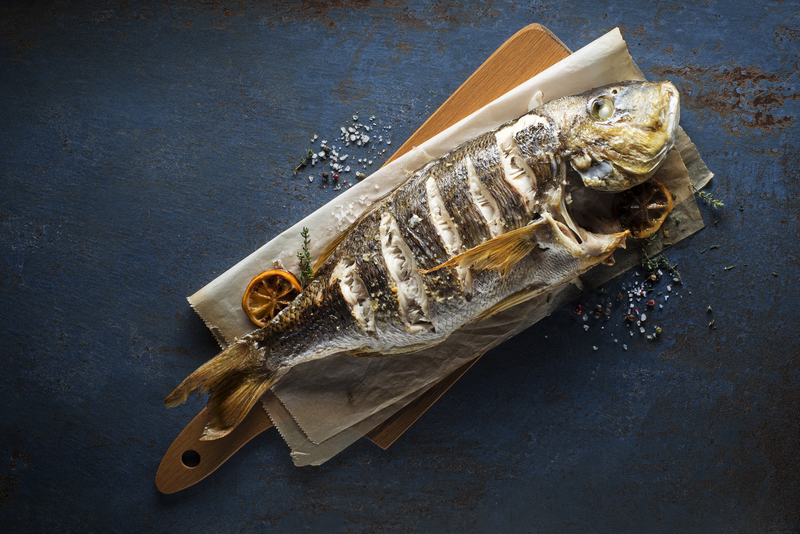
Types of Fish Suitable for Grilling
When it comes to grilling fish, not all types of fish are created equal.
Certain types of fish are better suited for grilling than others.
Generally, oily fish such as tuna, salmon, swordfish, and halibut are ideal for grilling since they tend to hold up well on the grill and have a rich flavor that can stand up to high heat.
For fillets, thicker cuts are better as they are less likely to fall apart on the grill.
Whole fish such as snapper, grouper, and mahi-mahi are also great options for grilling.
Grilling Equipment and Techniques
Grilling fish requires some specialized equipment and techniques to ensure that the fish is cooked properly and doesn’t stick to the grill.
When it comes to grilling equipment, both gas and charcoal grills work well for grilling fish.
A metal spatula is essential for flipping the fish without breaking it, and a grill brush is necessary for cleaning the grill grates before and after cooking.
To grill fish, it’s important to use direct heat and high heat.
This means placing the fish directly over the flame or heat source and cooking it quickly at a high temperature.
Wood chips can be added to the grill to add a smoky flavor to the fish.
It’s important to keep a close eye on the fish while grilling and to flip it only once to prevent it from falling apart.
Overall, the best fish for grilling are those that are oily, thick, and can withstand high heat.
Some of the most popular fish for grilling include sea bass, branzino, red snapper, bluefish, and pollock.
With the right equipment and techniques, grilling fish can be a delicious and healthy way to enjoy seafood.
Selecting the Right Oil for Grilling Fish
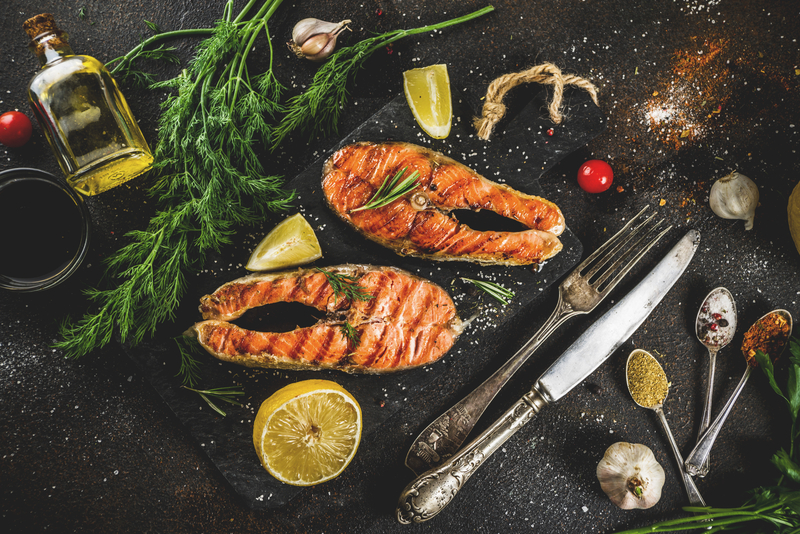
Properties of Oils
When it comes to grilling fish, selecting the right oil is crucial for achieving the perfect flavor and texture.
Different oils have different properties that affect the taste and nutritional value of the fish.
One important factor to consider is the smoke point of the oil.
The smoke point is the temperature at which the oil starts to smoke and break down, which can affect the flavor of the fish and release harmful compounds.
Olive oil is a popular choice for grilling fish due to its delicate flavor and high levels of healthy omega-3 fatty acids, which can reduce inflammation and improve heart health.
However, extra-virgin olive oil has a lower smoke point than other oils, so it may not be the best option for high-heat grilling.
Vegetable oil, avocado oil, canola oil, and peanut oil are all good choices for grilling fish due to their high smoke points.
Vegetable oil and canola oil have neutral flavors, while avocado oil and peanut oil have a slightly nutty taste that can complement certain fish types.
Here are a few fish varieties that pair well with avocado and peanut oil:
- Salmon: The rich, fatty nature of salmon pairs well with the subtle nuttiness of avocado or peanut oil, adding depth to its flavor.
- Tuna: The meaty and bold taste of tuna is nicely complemented by the nutty undertones of these oils, creating a harmonious flavor profile.
- Mahi-Mahi: This mildly sweet fish benefits from the added richness and slight nuttiness of avocado or peanut oil.
- Halibut: The firm, mild flavor of halibut pairs well with the nutty oils, enhancing its delicate taste without overpowering it.
- Swordfish: The dense and mildly sweet flavor of swordfish is elevated by the nutty richness of avocado or peanut oil, creating a well-rounded taste experience.
This Amazon Fresh, Avocado Oil is a versatile cooking oil known for its high smoke point of 500°F, making it perfect for grilling, sautéing, and frying.
Rich in heart-healthy monounsaturated fats and antioxidants like vitamin E, it offers nutritional benefits.
Its mild, slightly nutty flavor complements various dishes without overpowering them.
This cold-pressed, unrefined oil is also great for salad dressings, marinades, and baking, making it a versatile addition to any kitchen.
Using avocado oil can bring out the best in these fish types, making your grilled dishes even more enjoyable.
The 16.9 Fl Oz bottle is convenient for regular use and storage.
Sesame oil is another option that can add a unique flavor to grilled fish, but it should be used sparingly due to its strong taste.
Matching Oil with Fish Types
When selecting an oil for grilling fish, it’s important to consider the type of fish you are cooking.
Delicate fillets like flounder and haddock require a light oil with a mild flavor, such as vegetable oil or canola oil.
Firm-fleshed fish like skin-on fillets and white fish like cod can handle a stronger oil like olive oil or avocado oil.
Overall, the best oil for grilling fish depends on the specific fish type and personal preference.
Experimenting with different oils and flavors can lead to delicious and healthy grilled fish dishes.
Preparation and Seasoning of Fish for Grilling
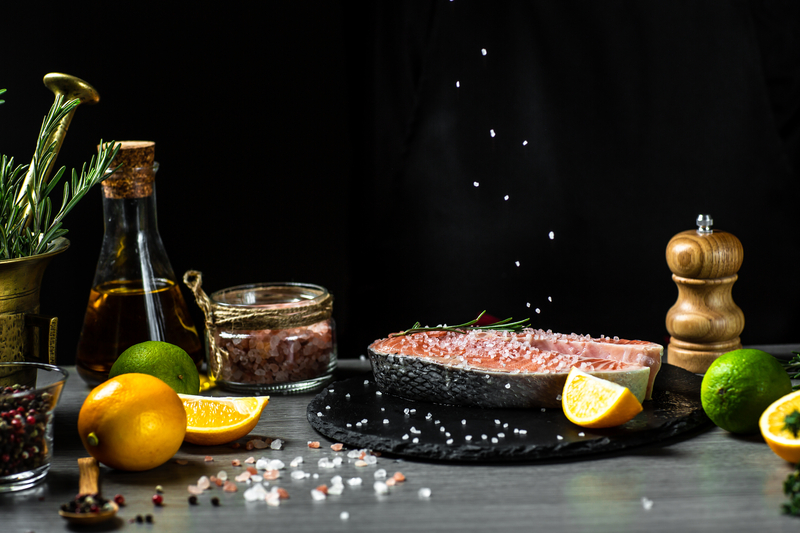
Marinating and Seasoning Techniques
Marinating fish is a great way to add flavor and moisture to your grilled fish.
There are a variety of marinades available in the market, but you can also make your own marinade using ingredients such as butter, lemon, salt and pepper, herbs like parsley, paprika, and black pepper.
Citrus-based marinades work particularly well with fish, as they help to tenderize the flesh and add a bright, tangy flavor.
To marinate fish, place it in a shallow dish and pour the marinade over it.
Make sure that the fish is coated evenly in the marinade and leave it to marinate for at least 30 minutes to an hour.
For best results, marinate the fish in the refrigerator and bring it to room temperature before grilling.
Seasoning the fish with salt and pepper is also an effective way to enhance its natural flavor.
You can also add other herbs and spices to the fish, such as rosemary or thyme, to give it a more complex flavor profile.
Pre-Grill Fish Handling
Before grilling the fish, it is important to handle it properly to ensure that it cooks evenly and does not stick to the grill.
Make sure that the fish is at room temperature before grilling, as this will help it to cook more evenly.
If you are grilling fish with the skin on, make sure to score the skin with a sharp knife before grilling.
This will prevent the skin from curling up and ensure that the fish cooks evenly.
Brushing the fish with a little oil before grilling can also help to prevent it from sticking to the grill.
In conclusion, marinating and seasoning fish before grilling can help to enhance its natural flavor and make it more tender and juicy.
Proper handling of the fish before grilling is also important to ensure that it cooks evenly and does not stick to the grill.
Grilling Techniques for Perfect Fish
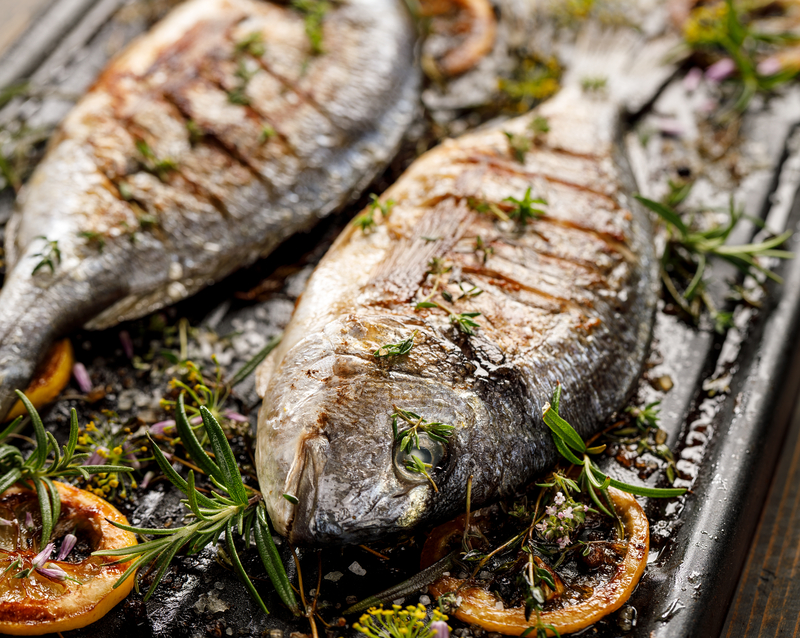
Managing Heat and Grill Placement
Grilling fish requires careful attention to heat management and grill placement.
It is important to preheat the grill to ensure that it is hot enough to sear the fish and create a smoky flavor.
The grill should be placed over opaque coals or on high heat, depending on the type of grill being used.
When grilling fish, it is important to place it on the grill with the thickest part facing the hottest part of the grill.
This will ensure that the fish cooks evenly and does not overcook.
The internal temperature of the fish should reach 135°F in the thickest part before it is removed from the grill.
Avoiding Common Grilling Mistakes
One of the most common mistakes when grilling fish is sticking.
To prevent sticking, the grill should be clean and well-oiled before placing the fish on it.
It is also important to avoid moving the fish too much while it is cooking, as this can cause it to stick.
Overcooking is another common mistake when grilling fish.
To avoid overcooking, it is important to keep a close eye on the fish and remove it from the grill as soon as it reaches the desired internal temperature.
It is also important to avoid over-flipping the fish, as this can cause it to break apart.
In summary, grilling fish requires careful attention to heat management, grill placement, and avoiding common grilling mistakes.
By following these techniques, you can achieve perfectly grilled fish with a smoky flavor and avoid overcooking or sticking.
Serving and Accompaniments
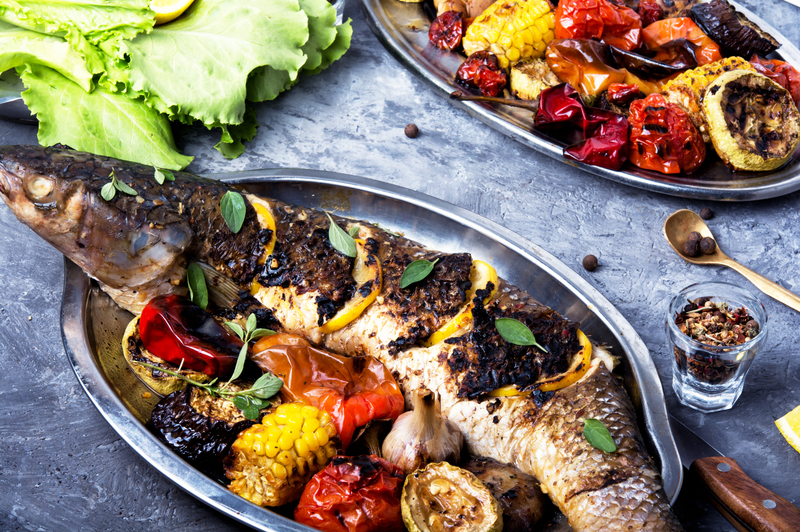
Presentation Tips for Grilled Fish
Grilled fish is not only delicious but also visually appealing when presented well.
Here are some tips on how to make your grilled fish look as good as it tastes:
- Use a platter that complements the colors of the fish and the side dishes. For example, a white platter will make the colors of the fish and the salad pop.
- Place the grilled fish on the platter with the skin side down, and arrange the salad and the side dishes around it.
- Garnish the fish with fresh herbs, such as parsley or cilantro, to add a pop of color and flavor.
- If you are serving a whole grilled fish, leave the head and tail intact for a dramatic presentation.
Side Dishes and Pairings
Grilled fish pairs well with a variety of side dishes.
Here are some suggestions:
- Salad: A fresh green salad with a light dressing is a great complement to grilled fish. Add some sliced tomatoes and cucumbers for extra flavor and texture.
- Rice: Steamed rice is a classic side dish for grilled fish. For a healthier option, use brown rice instead of white.
- Potatoes: Grilled or roasted potatoes are a hearty side dish that pairs well with grilled fish. Add some rosemary or thyme for extra flavor.
When it comes to pairings, grilled fish goes well with white wine or a light beer.
For a non-alcoholic option, try sparkling water with a slice of lemon.
Remember, the key to a successful grilled fish recipe is to use the right oil, such as avocado oil or grapeseed oil, to ensure that the fish doesn’t stick to the grill.
With the right accompaniments, your grilled fish recipe will be a hit at your next dinner party.



